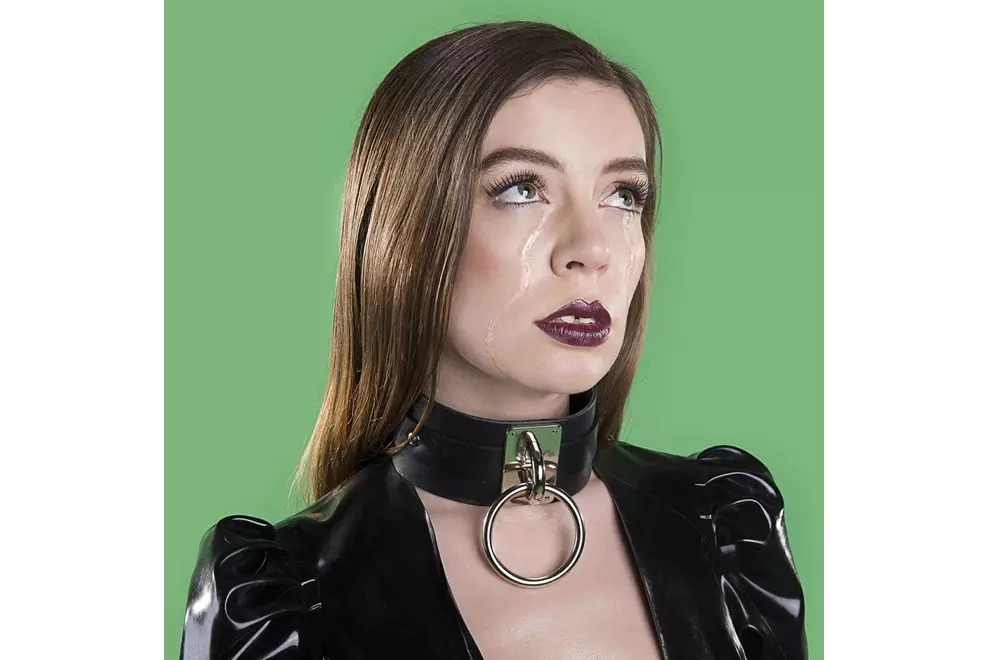 Jessica Says
Jessica SaysIn February 2010, at the end of a 40-degree day, Jessica Venables was in Sydney. She'd gone up from her Melbourne home to rehearse with Sally Seltmann and play a show of her own, as Jessica Says, in the wake of the debut album, We Need To Talk, that she'd released when she was just 21. Then, leaning out to have a cigarette, she "essentially fell out the window". The awning beneath her first-floor window gave way and Venables fell four-and-a-half metres onto the pavement below, fracturing her spine and pelvis. Venables would spend three weeks laid out on total bedrest in a Sydney hospital, her spine healing. After returning to Melbourne, she was in acute hospital care, then spent weeks in orthopaedic rehab.
The daughter of a violin maker and a violin teacher, Venables had studied the cello since early childhood, but suddenly playing music was instantly sidelined. "[The accident] made me value my life a lot more and respect my body a lot more," offers Venables. "I was very concerned about looks, and whether I was considered attractive, prior to the accident. Going through the process of learning to walk again, you gain a different perspective on the functional aspects of your body."
Initially, Venables thought she'd had a "miraculous recovery", coming out of her rehabilitation. She put out a single, World Without Men, one year after her fall. "But, then," she recounts, "I had some real setbacks, in terms of the emotional effects of what happened, and some relapses in terms of my walking - need to use a walking stick. As anyone who's gone through any kind of recovery knows, it really ebbs and flows."
Now 30, Venables is, finally, returning with her second album, Do With Me What U Will. It finds its songwriter older, wiser, more provocative; the piano ballads of her first record replaced by sparkling synth-pop. In the wake of her accident, Venables grew spooked by the fragility of life as a "freelance touring musician" and, inspired by the care she received, she studied nursing; putting music, for a stint, wholly to the side.
Don't miss a beat with our FREE daily newsletter
"I learned about other parts of myself I didn't know about when all I cared about was music. I was completely engulfed in that world: living in Melbourne in my early-20s, only socialising with other musicians. My life was quite insular, then. Now, I feel like I'm not just writing songs about what it means to be a musician. I feel more in touch with other experiences."
Her experiences working in nursing brought her in close contact with people from all ages and walks of life and, ultimately, inspired her to start writing her own songs again. "I was working on an adolescent psych ward for two years," Venables offers, "and [I saw] the way teenagers relate to music. Seeing their excitement about Lana Del Rey or Halsey, their fierce relationship with music, it reminded me of when I was 16 years old and I literally felt like Joanna Newsom and Belle & Sebastian gave me life. That was the time I started writing songs myself, so it took me back to that place. Seeing that adolescent obsession with music reminded me of how much I love it."
Returning to her musical guise, Venables wanted her music to "be more pop", employing a host of collaborators - Geoffrey O'Connor, Darcy Baylis, Travis Cook from Collarbones - after playing every instrument on her debut LP. She realised that the lyrics on her first album "were quite vague" and "not really about anything", and set out writing tunes with clearly defined themes; the jams on Do With Me What U Will dealing with girlhood, nascent sexuality, gender roles and mental illness.
"I thought about things that I'd observed, things that I was interested in, aspects of being a girl, what it's like to exist, different emotional struggles that a person might deal with," Venables offers. "As well as particular events in my life, from when I was ten - this song Fun Factory, about a birthday party I attended - up until a few years ago; how these events we experience can still influence our emotions years later. I feel like I can address things more directly in my songwriting now, but, emotionally, I feel exactly the same."
Returning to the stage, Venables has found playing Do With Me What U Will's songs, and performing in general, to be something that she can more easily embrace. "I've always had a lot of anxiety with performing, going back to when I was playing my cello at six or seven years old," Venables offers. "But, having gone through everything I did with my accident, the idea of performing became a little less terrifying, became something I could just enjoy."
















